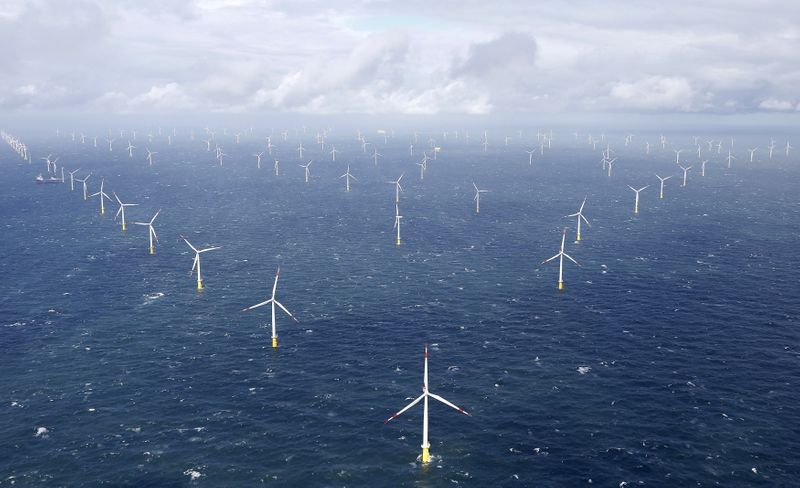FRANKFURT (Reuters) – German utilities on Monday cautiously welcomed the newly forming government’s climate protection plan, but warned that more support for renewables and gas-to-power plants was needed to ensure security of supply as coal burning is phased out.
The draft agreement published on Friday by the so-called “traffic light” coalition of centre-left Social Democrats (SPD), Greens and business-friendly Free Democrats said that ideally an exit from coal should be moved forward to 2030 from 2038.
It called for more solar and wind power to be brought in, as Germany plans to also get out of nuclear energy by the end of next year. Ahead of the election utilities said more clarity on and funding for alternative forms of power would be needed.[POWER/DE]
“The coal exit can only work with a sufficient expansion of renewables and gas-to-power plants in order to ensure the security of supply,” said utility industry association BDEW.
South-western company EnbW echoed this.
“The 2030 date is not unrealistic but, alongside a massive and clearly faster renewable build-out, we need new gas-to-power plants to balance grids when wind and sunshine are lacking to cover bottlenecks at short notice,” it said.
EnBW added it was looking into converting power plants running on fossil gas to units ready to accommodate clean hydrogen derived from wind and sunshine in the distant future.
RWE said it welcomed speedier approval procedures for renewables, on which it is keen to move faster to leave its activities in domestic brown coal and imported hard coal behind.
Activist shareholder Enkraft Capital said RWE needed to speed up its efforts to pull out of lignite, or brown coal, operations, where RWE is active in both mining and generation.
“In Germany, there is a clear political and social consensus that the phase-out of lignite must be accelerated,” it said. “The executive board of RWE still seems to be lagging behind the momentum.”
EnKraft said embracing change made immediate sense.
“A purely renewable energies-focused RWE will be rated significantly higher than the company in its current structure,” it said.
(Reporting by Tom Kaeckenhoff and Vera Eckert; Editing by Jan Harvey)



















